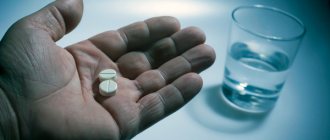How to choose a base for protein dilution?
Protein is usually diluted with milk or water. Sometimes protein is mixed with juice, compote, kefir, tea, lemonade, etc. Milk is an ideal option. It is rich in calcium, protein and healthy carbohydrates. But if you are lactose intolerant, you will have to give up milk in favor of water or another base. Even if you are okay with lactose, consider the following:
- milk will add calories;
- The body reacts to milk with a sharp jump in insulin.
However, milk improves the taste of the cocktail. If you are on a diet, consider the caloric content of milk and the body's insulin response. You need to keep your insulin levels low. However, a protein shake in the morning is a good idea even for those who are losing weight, since insulin sensitivity is high in the morning, and carbohydrate tolerance is also high. If you want to gain muscle mass, then a milkshake is a great solution.
How to take protein?
The manufacturer must write instructions for use on the product packaging. All protein cans contain information about the amount of micronutrients and other nutrients contained in one scoop. Before you start taking it, you should read the instructions for the product. Some proteins are low carbohydrate, others are quite high in carbohydrates. Some protein powders have more protein than others.
Only after familiarizing yourself with the composition and taking into account your daily norms, you can calculate the required amount of protein. However, regardless of this, there are general recommendations. For example, on training days it is recommended to take protein twice. The first time is one hour before the start of the workout. This will protect the muscles from breakdown and feed them during training. The second time - immediately after training for half an hour. At this time, the body needs nutrients and especially protein to restore strength.
In general, it is very easy to get your daily requirement of protein from protein. But professionals do not recommend doing this. It is best to get protein on a 50/50 basis, i.e. 50% from natural protein foods and 50% from protein powder.
Should you drink protein at night?
Home / Sports nutrition / Should you drink protein at night?
Lately, very often my clients and just ordinary people (when communicating) ask me the same question: should I drink protein at night? Is there (and will there be) any use (meaning) from this? ...
For those who don’t understand, we are talking about sports nutrition (protein from powder). And before answering this question, I must inform you that protein (protein) from powder has quite a few types (by origin). But, in essence, they can be divided into:
- Fast protein - also known as whey protein
- Slow protein - also known as casein
- Complex protein (hybrid (mixture) of whey + casein) (we will not talk about it, because it is not related to the topic of today’s article).
Often people do not know or understand this, and moreover, they do not understand the difference between them. The difference is that whey protein is quickly digestible, i.e. it is absorbed in the human body in the shortest possible time (almost instantly), thereby increasing the level of amino acids in the blood and accelerating protein synthesis by almost 70%. This type of protein may be required in the following cases:
- In the morning - after waking up. After sleep (fasting “8+” hours), our body experiences the greatest demand for amino acids, because at this time of day the body experiences the so-called. CATABOLISM (in other words, muscle breakdown), and accordingly, in order to prevent all this (if you are interested in this), you need to drink prot, which contains the “necessary goodness”.
- During the day, if you don’t have the opportunity or feel uncomfortable to cook (eat) complete protein (from regular food, eggs, meat, chicken, etc.). By the way, in this regard, protein (protein) from sports nutrition (powder) is much more convenient/quickly absorbed/prepared.
- Before training (half an hour or an hour, depending on how). This will provide the body with the necessary amount of BCAA and help you avoid muscle catabolism.
- After training (only if you combine it with simple carbohydrates). Anyway, there is very little real benefit from this meal. And pure SOLO protein (without simple carbohydrates) after a workout will do you absolutely no benefit AT ALL. Read more: "Nutrition after training."
But casein (aka “long”, “night”) is slowly digestible, which is slowly absorbed into the human body over the course of 5-7 hours; It has the property of suppressing appetite, and also slows down catabolism (muscle breakdown) from the destructive hormone “cortisol”. This type of protein is required to be consumed in two cases:
- Before bedtime. Because at night everyone sleeps, and does this for about 8-10 hours, and accordingly, without eating food all this time, casein protein will be very useful... because, firstly, it will slow down catabolism (therefore, it will save your muscles from destruction), and secondly secondly, it will suppress your appetite (you will wake up less hungry in the morning).
- During the day , if you know that you will go without eating food for a long time; So, again, you will at least suppress your APPETITE and CATABOLISM for some time (save your precious muscles), thereby killing two birds with one stone...
It is worth noting that CASEIN is found in COORD! Yes, yes, in regular cottage cheese)). That's why bodybuilders eat it regularly, and do so, in most cases, before bed (and now you know why). In general, read more about this in the main article: “Cottage cheese and bodybuilding.”
Conclusion from the article (short answer on the topic of the article): if you drink protein before bed, then only CASEIN! Whey - no point. Only casein!!! And only for those who do not eat regular cottage cheese.
If you don't mind/feel sorry, please share the link to this short note on social networks (social buttons are below). This is the best you can do, I will really, really appreciate it.
Best regards, administrator.
Saturday, June 22, 2019
Protein intake regimen
Building an athletic body is impossible without proteins. All protein mixtures are divided into fast, slow and complex.
Quick protein mixtures are drunk in the morning and after training to replenish amino acid reserves. Slow protein is taken at night to provide cells and tissues with the necessary supply of nutrients. If you are trying to lose weight, you can replace one meal with slow protein. Complex mixtures can be consumed both after training and before bed.
Pre-Workout Protein: Pros and Cons
So, we figured out when it’s better to drink protein - before or after training, and came to the conclusion that both intervals exist. Now, let's look specifically at what happens when you drink it before class:
- If you drink a portion of the cocktail an hour before training, the anabolic response of the muscles increases;
- They receive timely and adequate nutrition;
- Amino acid transport improves;
- Calories are burned more actively;
However, if you drink the product strictly before training, your muscles will not grow as quickly as if you use it after. Also, excess protein can lead to disturbances in the gastrointestinal tract, kidney and liver diseases, and depletion... of your wallet. The product is quite expensive, so if you are going to drink it a lot and often, be prepared to spend a lot of money.
This is why many athletes prefer to drink protein after training - it has more benefits for muscle growth, which is often the main goal.
How to calculate your protein requirement per day?
It is recommended to consume 2-3 grams of protein per 1 kg of weight per day. For women this norm is slightly less than for men. So, if you are a woman weighing 60 kg, then your daily protein requirement is 120 grams. Of this, you can get 60 grams from protein powder. If you are a man weighing 60 kg, then you can easily consume 180 grams of protein per day. Of these, 90 grams should come from natural foods (chicken breast, cheese, cottage cheese, milk, eggs and other high-protein foods).
How to dilute protein?
Typically, one scoop of protein powder is 30 grams. There are no standards for proportions. It all depends on taste preferences. The more powder and less base, the sweeter the cocktail will be. Much depends on the foundation itself. For example, cocktails made with milk are sweeter than those made with water.
So, how to dilute protein with milk? the proportions and quantities are indicated below.
With milk, the protein mixture turns out quite sweet, so it is recommended to dilute one measuring spoon, i.e. about 30 grams, in 500 ml of milk. If you are going to drink two scoops, you will need a liter of milk. If we talk about how to properly dilute protein with milk, we can recommend either using a large volume of liquid (1 liter) or mixing milk with water so that it is not cloyingly sweet.
To prepare a cocktail, you need to use low-fat milk.
The second most popular base for diluting protein powder is water.
How to dilute protein with water? In the same way as with milk, you just need to take into account the taste characteristics. It is best to dilute protein with water, as recommended by professional athletes and manufacturers of protein mixtures, in a hand shaker. Shakers can be purchased at the same sporting goods stores as protein shakers.
How to dilute protein with water? Proportions and quantities are very important. With water, the protein becomes less sweet. For one measuring spoon, 200-250 ml of water will be enough. And for two measuring spoons, 500 ml is enough. For this, non-carbonated mineral, purified or boiled water is used.
Protein with water
- This is the best solution after a hard workout, when your body especially needs protein. Protein with water is absorbed faster and is involved in muscle recovery. And due to the low density of water, protein mixes with it most easily.
- Water is ideal if you are taking protein for weight loss because it obviously contains no calories!
- The downside is the taste. Some people don't like the taste of a protein shake made with water. With milk, for example, it’s a completely different story.
How to dilute protein in a shaker?
Why do many people recommend using a shaker to make protein shakes? Because thanks to the shaker you can get the most homogeneous mass, which in consistency will not resemble semolina porridge from kindergarten with terrible lumps. How to properly dilute protein in a shaker? Simply pour milk into the shaker, add the required amount of protein, close the lid and shake the shaker until the mixture becomes homogeneous. Hand shakers have special balls or meshes for this purpose.
When is it better to take protein - before or after training?
To date, only one study has compared the effects of protein intake before and after exercise on muscle strength and mass. The researchers divided 21 people into two groups, both of which received a protein shake containing 25 grams of protein. One group received it immediately before training, and the other group received it immediately after ().
Each of these people did a full-body workout three times a week for 10 weeks.
Interestingly, the study found no significant differences in muscle strength or mass between the groups. These results show that it doesn't matter whether you drink your protein before or after your workout. Therefore, you can prioritize the time that is most convenient for you.
Conclusion:
The timing of the protein shake (before or after strength training) does not affect muscle strength or mass.
Cocktail ingredients
If the protein is diluted in milk, then the cocktail, in addition to protein, also includes carbohydrates and fats. Many manufacturers enrich their product with vitamins, for example, vitamin B. There is little point in this, since the need for vitamins is covered by food and vitamin supplements. How to dilute protein enriched with mineral supplements and vitamins? It is best to take this protein with water. Why? Everything is very simple. If the protein is enriched, for example, with iron, then it should not be taken with milk. Milk itself contains a fairly large amount of vitamins. Some components of milk can neutralize protein components. Why do manufacturers fortify protein? For the sake of profit, it's simple. If we talk about protein enrichment, it is best to add amino acids to it.
Quality of Protein Powder
The ideal protein for a person contains per 1 gram:
- Isoleucine - 40 mg.
- Leucine - 70 mg.
- Lysine - 55 mg.
- Methionine and cystine in total - 35 mg.
- Phenylalanine and tyrosine in total - 60 mg.
Protein corresponding to mother's milk is considered ideal for growth. Whey protein came closest. On the market today there are: whey, egg white, casein, soy, wheat protein. Plant protein is incomplete; for example, wheat protein contains little lysine.
How to dilute whey protein? Just like anyone else. Whey protein is nothing but proteins derived from whey.
Which dry protein is best?
There are several types of protein powder, but two of the most popular are:
- Serum
- Casein
They are both derived from milk, but there are differences between them that you need to know...
Serum
Among the two types of protein, whey is considered a “ fast ” protein. It is quickly absorbed in the body.
So if you need to get your protein fix as quickly as possible, whey is your best bet.
Such cases actually exist:
- Pre-workout (if consuming protein less than 30 minutes before workout)
- During training (necessary in certain situations)
- Immediately after training (most popular method of use).
Athletes, bodybuilders and others who want to build great bodies have been using whey protein for years and surrounding their workouts with it.
It's hard to say whether whey protein is actually better than a regular post-workout meal (I'm still on the fence about that).
In any case, whey is the protein source that is most often recommended in such cases. I myself often use the serum after training.
Casein
Casein is known as a " slow " protein. It is absorbed much slower than whey, so it is not recommended to take it before and after training (as we want fast absorption, in which case whey is better for us).
However, casein is the right choice if you are in no rush and need to digest your protein slowly.
For this reason, casein is suitable when you consume protein independent of your workout. Just as part of your daily diet.
When you combine whey with carbohydrates and fats, you will get the same result - slow absorption of food.
There is one significant benefit of casein: the last meal before bed .
During sleep, your body rests and repairs, so it needs protein.
Since you spend about 8 hours sleeping, you should pay attention to protein with slow absorption.
Now tell me, are the benefits of casein protein powder as significant as many people think? Hard to tell. However, there are cases where casein is indeed the optimal way to consume protein.
Whey Protein Isolate
Whey protein isolate is highly purified (more than 85% protein) and contains no fat or carbohydrates. When producing isolate, whey is dehydrated, lactose, harmful cholesterol, and animal fat are removed. The isolate helps quickly restore muscles after strength training, prevents catabolism and enhances anabolism.
The isolate, due to its high purification, is less allergenic than concentrated proteins. This supplement is essential for bodybuilders with lactose intolerance. Compared to regular isolates, whey is better absorbed, has an antioxidant effect, and improves immunity.
100% Whey Gold Standard is a whey protein that is quite common among athletes. It is ideal after anaerobic training. How to dilute 100% Whey Gold Standard protein with milk? First, calculate how much protein you need per day. Divide the daily amount in half. And consume no more than half of protein. Ideally, the ratio of natural protein to protein should be 2:1.
Does the “anabolic window” matter?
Many people find that drinking a protein shake within 30 minutes of a strength workout will maximize their performance in the gym. This 30-minute window, commonly referred to as the “anabolic window,” is a short period of time when your muscles are like a sponge, maximizing protein absorption.
The thought is that if you consume protein outside of the anabolic window, your body will not use it effectively or build muscle (). Research now shows that this anabolic window is much greater than 30 minutes and cannot be limited to a short period of time after exercise ().
In fact, in terms of optimizing muscle recovery and growth, it doesn't matter whether you drink protein before or after your workout.
Conclusion:
Previously, it was believed that protein should be consumed within 30 minutes after exercise to allow the body to make the most of it. Recent research suggests that this may not be the case.











